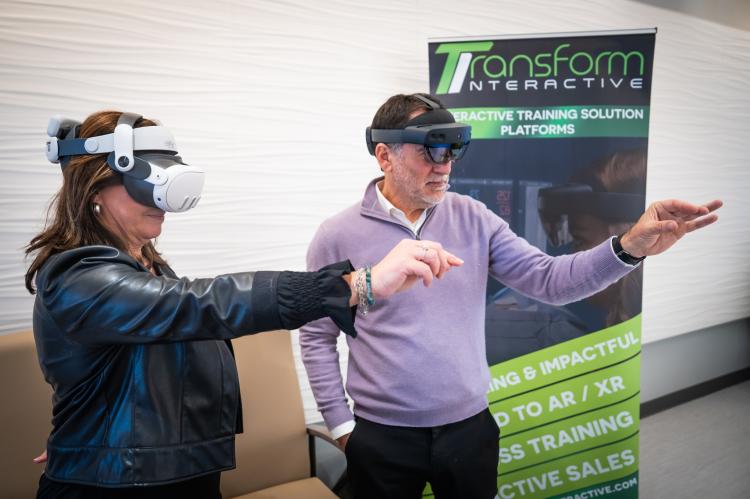Simulation has become a standard approach in healthcare education, transitioning from an uncommon practice to a fundamental component of the learning process. Recently, educators, healthcare professionals, and industry leaders gathered for the Northern Ontario Simulation Symposium, titled "Reconnect and SIMaginate." The event focused on exploring innovative approaches to experiential learning across Ontario.

"Simulation-based education has been proven to be a very effective teaching strategy that enhances confidence, critical thinking, and skill acquisition which, ultimately, leads to improved client safety and outcomes," said Louise Moir, RN, Nursing Simulation Technologist at Canadore College. "Educators, administrators, and healthcare professionals from various disciplines across the country attended the event to gain deeper insights into best practices and learn how to integrate these methods into program curricula or healthcare professional training."
Drawing on evidence-based best practice standards, participants evaluated various modalities to create meaningful simulation scenarios.
Canadore College has won nation-wide recognition for its use of simulation. Students in the human care and social services programs learn how to care for clients with high-fidelity mannequins, virtual and augmented reality, and live actor simulation, providing experiential learning before they work with real clients.
"We are honoured to host this conference in collaboration with Collège Boréal," said Dr. Letitia Nadalin-Penno, Dean of the Faculty of Environmental Studies and Health Science. "This conference is designed to facilitate the exchange of innovative methodologies, practices, and research across healthcare disciplines used in education and healthcare."
Since 2013, Canadore College, Georgian College, and Collège Boréal have collaborated in organizing the symposium. This year marks the event's return after a hiatus prompted by the COVID-19 pandemic.













